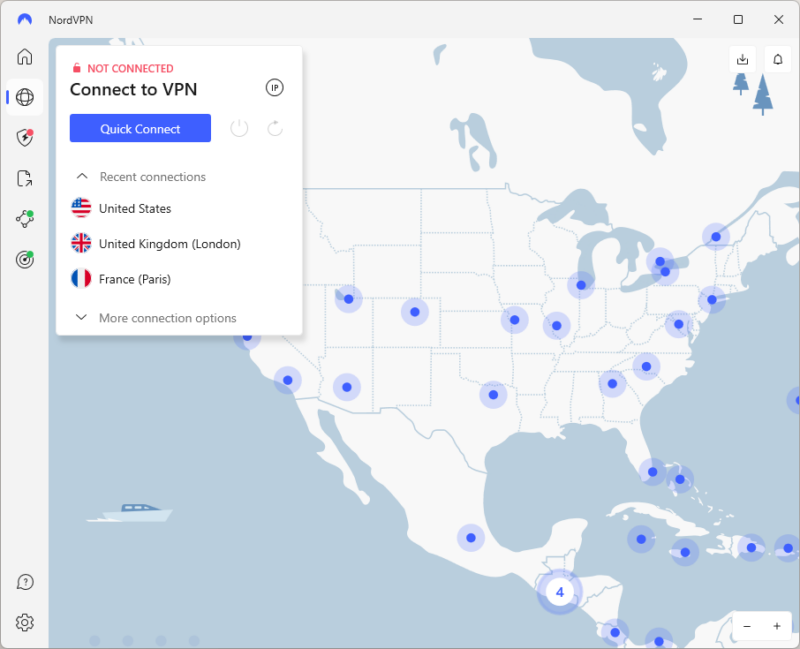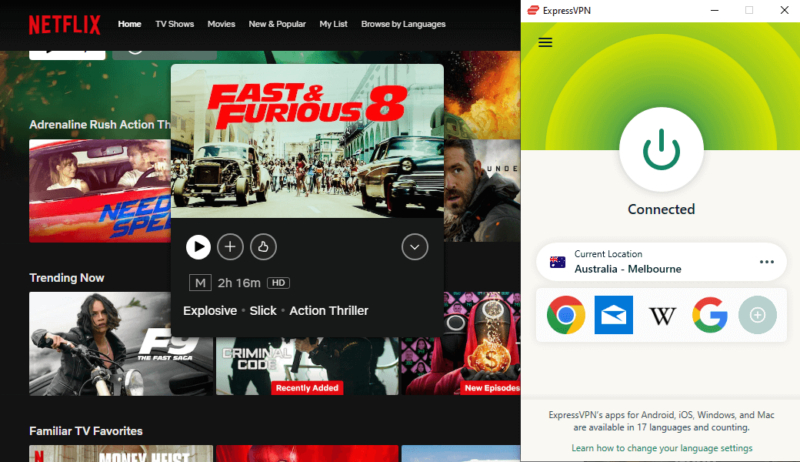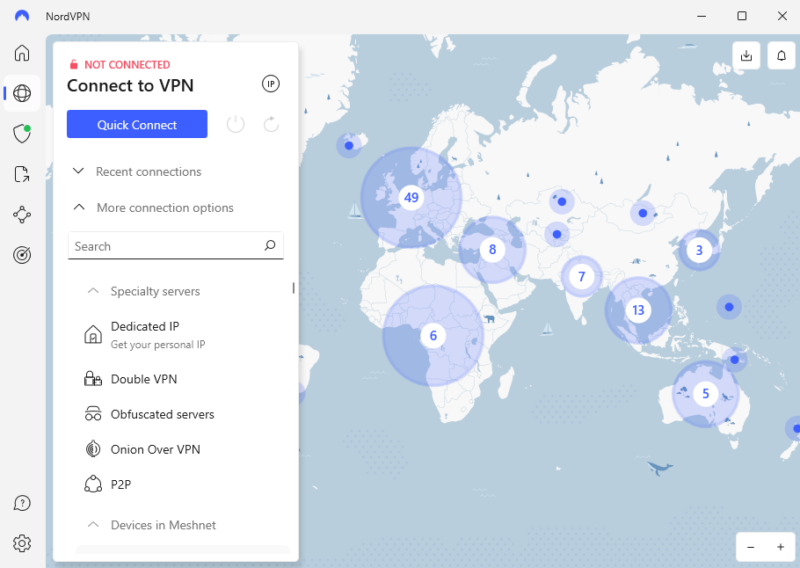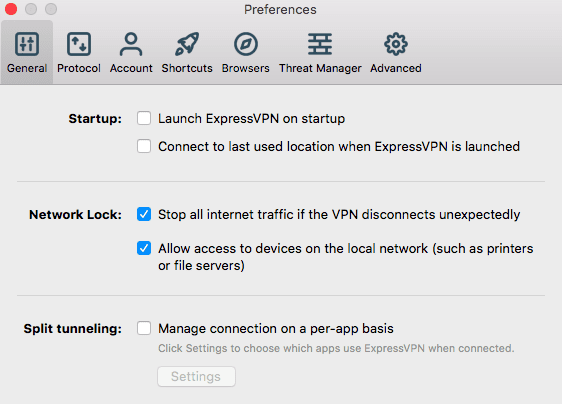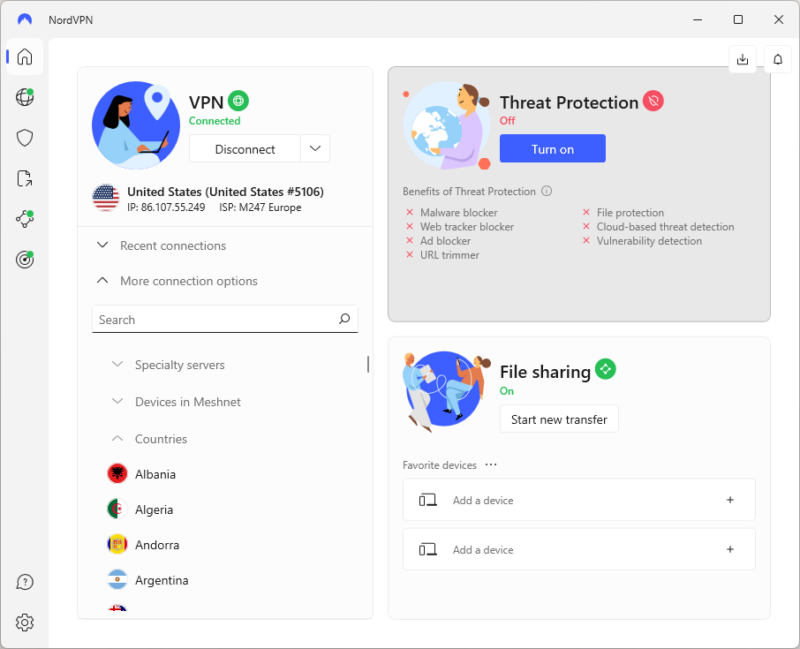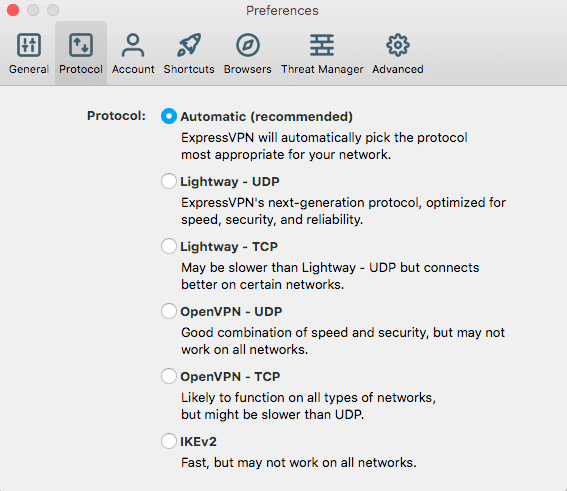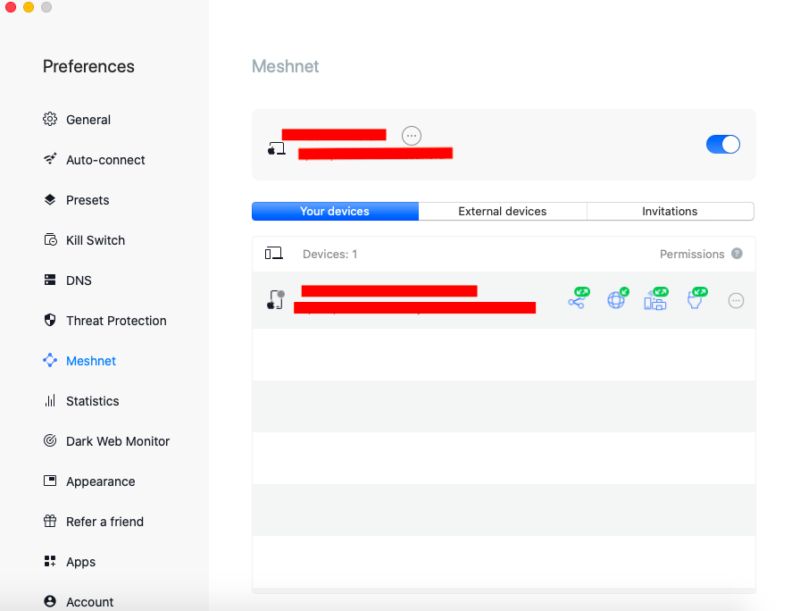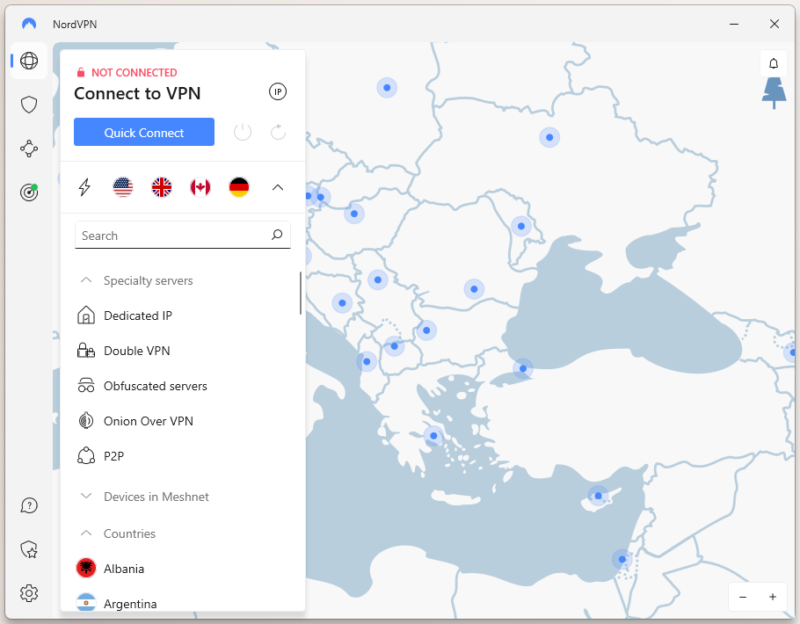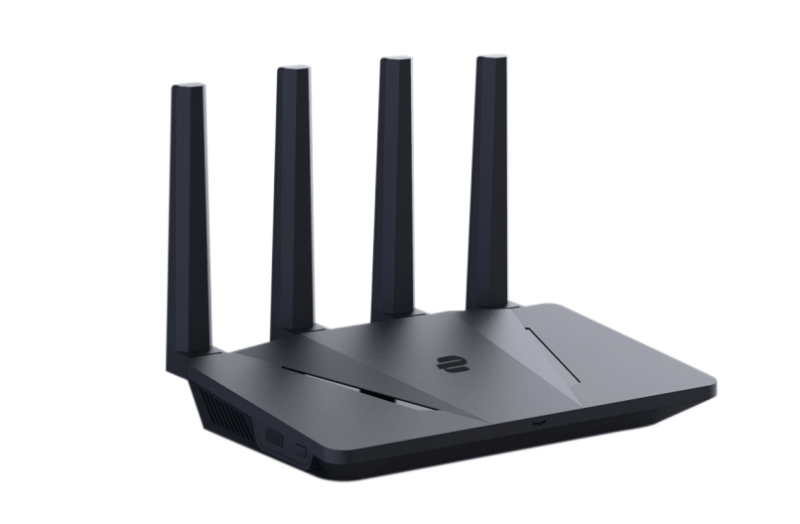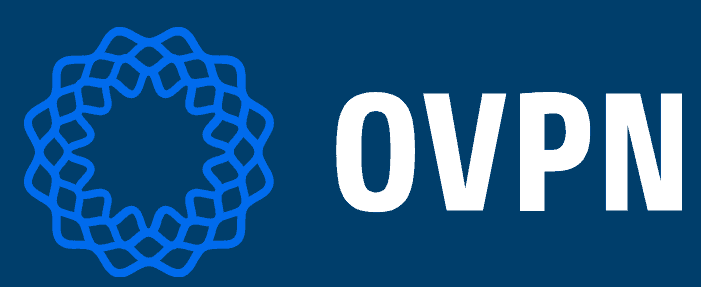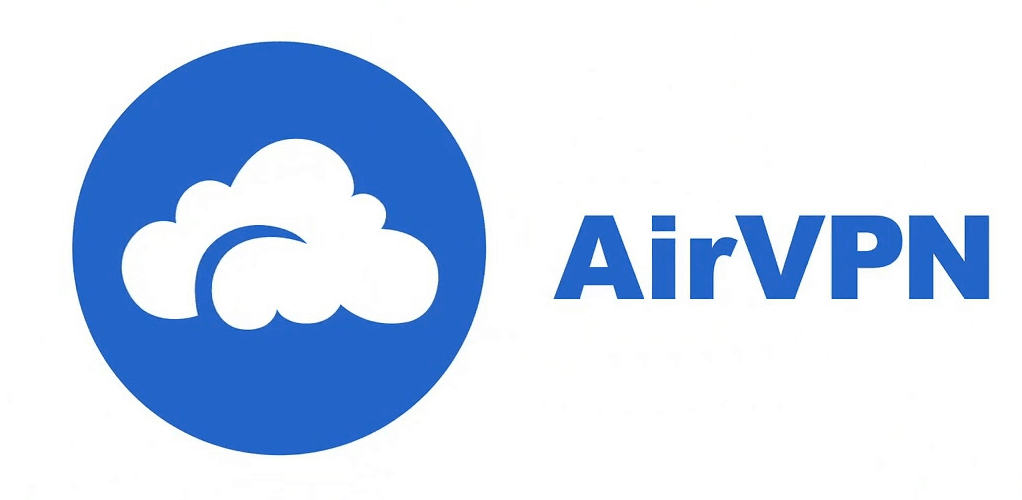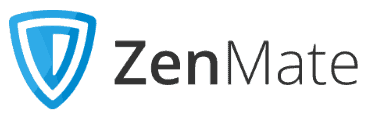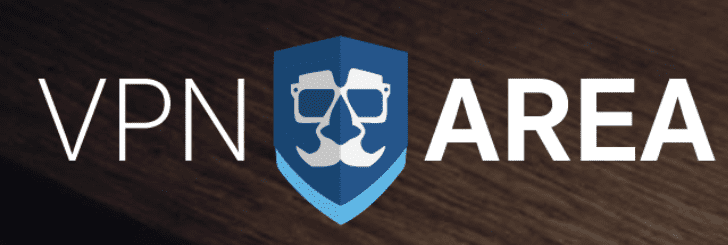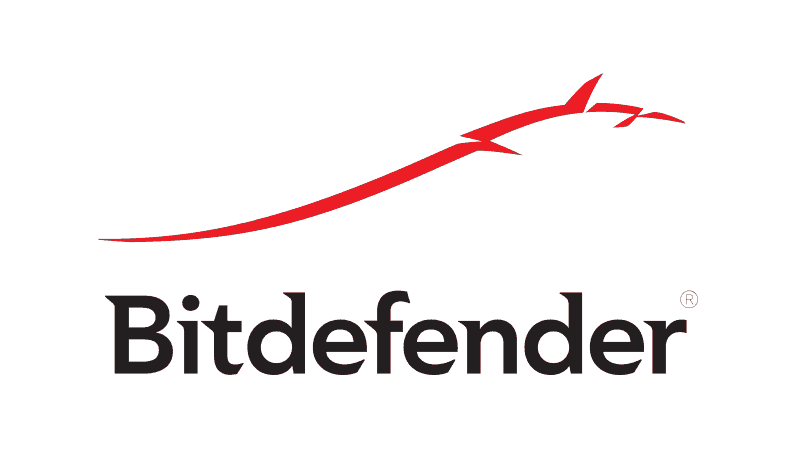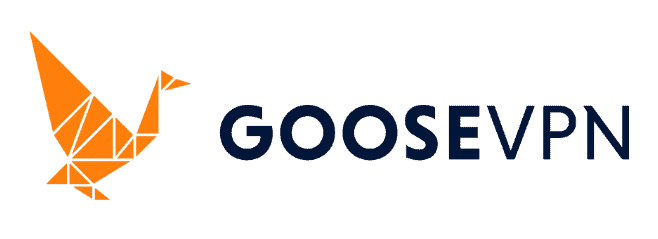ExpressVPN vs NordVPN in 2025: Two Top VPN Providers Compared
ExpressVPN and NordVPN are two of the most popular and widely used VPN services. Both claim to be super fast and secure. In this ExpressVPN vs NordVPN comparison, we settle the debate and show you which is better.
If you’ve narrowed your virtual private network search down to NordVPN vs ExpressVPN, the final decision is going to be subjective. Both VPNs are fast, secure, user-friendly and backed by competent customer support. When we talk about the best VPNs, NordVPN and ExpressVPN always rank highly. The final decision is a matter of individual needs.
NordVPN is the one to choose if you’re excited about innovative security features like Meshnet and the NordLynx protocol. While ExpressVPN is less flashy — and often slightly slower — it has a more beginner-friendly design.
We’ll walk you through the points that both VPNs share, then examine the key factors that distinguish them. By the end, you’ll have all the information you need to make the final call.
-
09/14/2021 Facts checked
Cloudwards updated this comparison with a fresh evaluation of ExpressVPN vs NordVPN. We also added more information about Kape Technologies buying ExpressVPN in September 2021.
-
07/25/2022 Facts checked
Reevaluated the NordVPN-ExpressVPN dynamic and rewrote the comparison. Spit the “security and privacy” round into two rounds.
-
05/13/2023 Facts checked
We rewrote and restructured this comparison article, and updated it with accurate information.
-
10/04/2023 Facts checked
We updated the article with more information about the services’ latest features, and reorganized the structure to bring the most pertinent information to the front.
-
11/22/2023 Facts checked
Updated the article to reflect ExpressVPN’s recent increase of five simultaneous connections to eight, as well as its expansion of server presence to 105 countries, previously 94.
-
02/22/2024 Facts checked
We updated the formatting to make the comparison easier to read, and added some information about ExpressVPN’s interface.
-
07/24/2024 Facts checked
Updated the article to reflect latest information on NordVPN’s allowed number of simultaneous connections.
-
10/01/2024
We’ve rewritten the matchup to reflect improvements and changes for both VPNs.
Which Is Better: ExpressVPN vs NordVPN?
Overall, NordVPN is better than ExpressVPN. Although we’ve picked a winner in this matchup, we’re not saying you should choose NordVPN 100% of the time. Both virtual private networks are among the best, and ExpressVPN may make more sense in certain cases.
Who Is NordVPN For?
- Users looking for a bargain: NordVPN’s plans are cheaper than ExpressVPN’s at the same level, and only NordVPN lets you pay one month at a time.
- Fans of streaming and video chatting: NordVPN’s average worldwide speed loss is lower than ExpressVPN’s, so you can count on better video quality and less buffering.
- People wanting to bundle several privacy apps together: The higher-tier NordVPN packages include a password manager and encrypted cloud storage — see our NordPass review to learn what the password manager offers.
Who Is ExpressVPN For?
- New VPN users: ExpressVPN has a simpler interface and fewer features. Those who are new to VPNs or need one only for a few specific tasks may find it more comfortable to use.
- Those installing a VPN on a router: You can install both ExpressVPN and NordVPN on a router. However, only ExpressVPN has a dashboard that lets you control your router VPN as you would with any other VPN app.
- Users interested in IKEv2: ExpressVPN makes the mobile-friendly IKEv2 protocol more available than NordVPN does.
Our Detailed Comparison Methodology
For us, comparing two VPNs starts with gaining a deep understanding of how they work individually. We test how each service approaches all the varied goals of a VPN, from privacy to media access.
For each provider, we probe its security for leaks, run rigorous speed tests, check its ability to unblock websites and comb through its history to look for telling incidents. You can also read our full NordVPN review and ExpressVPN review for more in-depth details about each VPN.
After reviewing each individual service, we make a careful list of the similarities between the two, then look for illustrative differences. By understanding each VPN’s distinct features, we can make clear recommendations regarding who should pick which service. We aim to equip you with this same depth of knowledge.
NordVPN vs ExpressVPN: Comparison at a Glance
| Features | ||
|---|---|---|
| $3.01 / month(All Plans) 30-days money-back guarantee | $4.99 / month(All Plans) 30-days money-back guarantee | |
| Review | Review | |
| Payment methods | PayPal, Credit card, Google Pay, JCB, UnionPay, Bitcoin, Ethereum, X-Coin | PayPal, Credit card, Bitcoin, UnionPay, iDeal, Sofort, Giropay, Pixpay, Sepa Direct Debit |
| Accepts cryptocurrency | ||
| Simultaneous connections | 10 | 8 |
| Supports split tunneling | Windows, Android & Android TV only | Windows & macOS 10 (or below) |
| Unlimited bandwidth | ||
| Free trial available | Android, 7 days | iOS & Android, 7 days |
| Refund period | 30 days | 30 days |
| Worldwide server amount | 142 locations in 110 countries | 164 locations in 105 countries |
| Desktop OSes | Windows, MacOS, Linux | Windows, MacOS, Linux |
| Mobile OSes | Android, iOS | Android, iOS |
| Browser extensions | Chrome, Firefox, Edge | Chrome, Firefox, Edge |
| Can be installed on routers | ||
| Can access Netflix US | ||
| Can access BBC iPlayer | ||
| Can access Hulu | ||
| Can access Amazon Prime Video | ||
| Encryption types | 256-AES, ChaCha20 | 256-AES, ChaCha20, Camellia |
| VPN protocols available | OpenVPN, NordLynx, NordWhisper | OpenVPN, IKEv2, Lightway |
| Enabled at device startup | ||
| Allows torrenting | ||
| No-logging policy | ||
| Passed DNS leak test | ||
| Killswitch available | ||
| Malware/ad blocker included | ||
| Live Chat | 24/7 | 24/7 |
| Email support | 24/7 | 24/7 |
| Phone support | ||
| User forum | ||
| Knowledgebase |
ExpressVPN vs NordVPN: Similarities
In this section, we’ll cover what ExpressVPN and NordVPN have in common. This isn’t meant to be an exhaustive list, but it should give you a basis for understanding where the two diverge.
ExpressVPN vs NordVPN: Differences
This section explains where NordVPN and ExpressVPN differ. Some sections describe a feature found on one VPN but not the other, while others refer to a shared goal that both services approach in different ways.
Do ExpressVPN or NordVPN Work in China?
Unfortunately, neither ExpressVPN nor NordVPN work reliably in China. In this case, both VPNs are victims of their own success. Each gained so much notoriety for bypassing the Great Firewall that the Chinese government now targets their servers specifically. This forces the VPNs to play catch-up and leaves them offline for Chinese users much of the time.
For those of you planning to China, the good news is that one top-tier VPN can still be trusted there: Surfshark. See our Surfshark review to learn more about this provider. Be warned that no VPN works in China all the time, so you should download at least three onto each device you plan to bring there. Also, make sure to get the VPNs before you go.
Community Feedback: ExpressVPN vs NordVPN Reviews on Reddit & Social Media
Redditors tend to acknowledge the high quality of both services. A Reddit user on r/VPNAdvice declared NordVPN as their narrow favorite, citing NordVPN’s larger server network and ExpressVPN’s high price. Another post on the NordVPN subreddit called NordVPN “a much better deal” and described NordLynx as “very reliable and fast.”
The Verdict: Why We Think NordVPN Wins Overall
NordVPN wins this matchup because it beats ExpressVPN on the fundamentals. It’s a little faster and a little cheaper, plus it offers far more features to the user. Since both unblock every streaming site and have expansive lists of IP locations, the victory comes down to a game of inches.
However, ExpressVPN is still a great VPN, and it might be better for VPN newbies, who need a simple interface and usability, and for users who want an easy router set-up.
Do you agree with our winner? Which of these VPN services do you prefer — or did you go with another one altogether? What’s most important to you when you shop for a VPN? Tell us all about it in the comments. Thanks for reading, and we hope this article helped you in your VPN search.
ExpressVPN vs NordVPN Compared to Other VPN Providers
Of course, ExpressVPN and NordVPN aren’t the only two VPN services on the market. Here’s how they stack up to a few other well-known providers.
NordVPN vs ExpressVPN vs Surfshark
Surfshark is a close contender to both ExpressVPN and NordVPN. The main advantage it has over them is unlimited simultaneous connections on every subscription, which can save a lot of money for large groups. It also has an even more extensive software library than NordVPN, including Surfshark Antivirus and the Incogni data removal tool.
NordVPN vs ExpressVPN vs IPVanish
IPVanish is a reasonably fast VPN that’s good at unblocking streaming sites. However, its security isn’t nearly as strong as either of our contenders today — not only has it violated its own privacy policy in the past, but it experienced several DNS leaks in our tests. Our IPVanish review details why it’s better to avoid it.
NordVPN vs ExpressVPN vs Proton VPN
Proton VPN offers an incredibly slick app design and has one of the only free VPN plans with no limit on data usage — though you can’t pick your server. It’s also quite fast. Compared to ExpressVPN and NordVPN, though, its server network and customer support options are lacking. Check out all the details in our Proton VPN review.
If You Want to Consider Other Services, Check Out…
CyberGhost has a number of exciting features, including servers focused on streaming and a sophisticated “smart rules” automation system. You can read about it in our CyberGhost review.
In the same VPN family as CyberGhost and ExpressVPN, you’ll find Private Internet Access (PIA), a service that offers significant value for your money. Our Private Internet Access review explores it in detail.
Mullvad is a high-performing VPN provider that makes privacy its main focus. It’s one of the few providers that doesn’t require an email address or any other identifying feature to sign up. See our Mullvad review to learn more.
Those who prefer not to pay for a VPN at all should explore our list of the best free VPN services. Our favorite is PrivadoVPN — which we cover in our PrivadoVPN review — but hide.me, Proton VPN, TunnelBear and Windscribe are all worth a look.
- 1
- : PayPal, Credit card, Google Pay, JCB, UnionPay, Bitcoin, Ethereum, X-Coin
- : 10
- :
- :
- :
- :
Average speedDownload Speed90 MbpsUpload Speed9 MbpsLatency3 ms - 2
- : PayPal, Credit card, Google Pay, Amazon Pay
- : Unlimited
- :
- :
- :
- :
Average speedDownload Speed94 MbpsUpload Speed9 MbpsLatency3 ms - 3
- : PayPal, Credit card, Bitcoin, UnionPay, iDeal, Sofort, Giropay, Pixpay, Sepa Direct Debit
- : 8
- :
- :
- :
- :
Average speedDownload Speed91 MbpsUpload Speed9 MbpsLatency4 ms - 4
- : PayPal, Credit card, Cash, Bank Transfer, Bitcoin Cash, bank wires, EPS transfer, Monero, Swish, Giropay, Bancontact, Przelewy24, iDEAL
- : 5
- :
- :
- :
- :
Average speed - 5
- : PayPal, Credit card, Wire Transfers
- : 5
- :
- :
- :
- :
- 6
- : PayPal, Credit card, bitcoin, Amazon Pay
- : 7
- :
- :
- :
- :
Average speed - 7
- : PayPal, Credit card, Amazon, Paygarden, Apple Pay, Google Pay
- : Unlimited
- :
- :
- :
- :
Average speedDownload Speed73 MbpsUpload Speed9 MbpsLatency84 ms - 8
- : PayPal, Credit card, SEPA, SOFORT, Apple Pay, Google Pay
- : 10
- :
- :
- :
- :
- 9
- : PayPal, Credit card
- : 10
- :
- :
- :
- :
- 10
- : PayPal, Credit card
- : Unlimited
- :
- :
- :
- :
Average speed - 11
- : PayPal, Credit card, Bitcoin, Monero, Cash
- : 7
- :
- :
- :
- :
- 12
- : PayPal, Credit card
- : 10
- :
- :
- :
- :
- 13
- : PayPal, Credit card
- : 5
- :
- :
- :
- :
- 14
- : PayPal, Credit card, Payment wall, Bank transfer
- : 5
- :
- :
- :
- :
- 15
- : PayPal, Credit card, BitPay
- : 10
- :
- :
- :
- :
- 16
- : Credit card
- : Unlimited
- :
- :
- :
- :
- 17
- : PayPal, Credit card
- : 25
- :
- :
- :
- :
- 18
- : PayPal, Credit card
- : 4
- :
- :
- :
- :
- 19
- : PayPal, Credit card, AliPay
- : 12
- :
- :
- :
- :
- 20
- : PayPal, Credit card
- : 5
- :
- :
- :
- :
- 21
- : PayPal, Credit card
- : 10
- :
- :
- :
- :
- 22
- : PayPal, Credit card
- : 10
- :
- :
- :
- :
- 23
- : PayPal, Credit card
- : 8
- :
- :
- :
- :
- 24
- : PayPal, Credit card, Cryptocurrencies
- : Unlimited
- :
- :
- :
- :
- 25
- : PayPal, Credit card, PayNearMe, Wire transfer
- : 6
- :
- :
- :
- :
- 26
- : PayPal, Credit card, PaymentWall, Cryptocurrencies
- : 10
- :
- :
- :
- :
- 27
- : PayPal, Credit card, Perfect Money, WeChat Pay, Direct Bank Transfers, Monero
- : 5
- :
- :
- :
- :
- 28
- : PayPal, Credit card
- : Unlimited
- :
- :
- :
- :
- 29
- : PayPal, Credit card, Alipay, Unionpay, bitcoin
- : 6
- :
- :
- :
- :
- 30
- : Credit card
- : 5
- :
- :
- :
- :
- 31
- : PayPal, Credit card, Amazon Pay, Apple Pay, Google Pay, GiroPay, iDeal, SEPA
- : 5
- :
- :
- :
- :
- 32
- : PayPal, Credit card, Google Pay, Amazon Pay
- : Unlimited
- :
- :
- :
- :
- 33
- : PayPal, Credit card
- : 99
- :
- :
- :
- :
- 34
- : PayPal, Credit card
- : 5
- :
- :
- :
- :
- 35
- : PayPal, Credit card
- : 8
- :
- :
- :
- :
- 36
- : PayPal, Credit card, wire transfer (EUR only)
- : 10
- :
- :
- :
- :
- 37
- : PayPal, Credit card
- : 2
- :
- :
- :
- :
- 38
- : PayPal, Credit card, Google Wallet, Apple Pay
- : 5
- :
- :
- : Unknown
- :
- 39
- : PayPal, Credit card, Bitcoin
- : Unlimited
- :
- :
- :
- :
- 40
- : PayPal, Credit card
- : Unlimited
- :
- :
- :
- :
- 41
- : PayPal, Credit card, Bitcoin, Google Pay, Apple Pay
- : 10
- :
- :
- :
- :
- 42
- : PayPal, Credit card
- : 10
- :
- :
- :
- :
- 43
- : PayPal, Credit card
- : 8
- :
- :
- :
- :
- 44
- : PayPal, Credit card
- : 10
- :
- :
- :
- :
- 45
- : PayPal, Credit card, Sofort, Mint, Other cryptocurrencies
- : 5
- :
- :
- :
- :
- 46
- : PayPal, Credit card
- : 6
- :
- :
- :
- :
- 47
- : PayPal, Credit card
- : 5
- :
- :
- :
- :
- 48
- : Credit card
- : Unlimited
- :
- :
- :
- :
- 49
- : PayPal, Credit card
- : 10
- :
- :
- :
- :
- 50
- : PayPal, CCBill, altcoin, Bitcoin
- : 6
- :
- :
- :
- :
$1.86 / month(All Plans) - 51
- : PayPal, Credit card, iDEAL (Netherlands only)
- : Unlimited
- :
- :
- :
- :
- 52
- : PayPal, Credit card
- : 5
- :
- :
- :
- :
- 53
- : PayPal, Credit card
- : 10
- :
- :
- :
- :
- 54
- : PayPal, Credit card, CoinPayments, Advcash, gift cards
- : 5
- :
- :
- :
- :
- 55
- : PayPal, Credit card, JCB, Union Pay, Payment Wall
- : Unlimited
- :
- :
- :
- :
- 56
- : PayPal, Credit card, WebMoney, WebMoney, Paymentwall
- : 3
- :
- :
- :
- :
- 57
- : App store
- : 1
- :
- :
- :
- :
- 58
- : PayPal, Credit card
- : 5
- :
- :
- :
- :
- 59
- : PayPal, Credit card
- :
- :
- :
- :
- :
- 60
- : OTX, xDai
- : Unlimited
- :
- :
- :
- :
- 61
- : PayPal, Credit card, Discover, Apple Pay, Google Pay
- : Unlimited
- :
- :
- :
- :
- 62
- : PayPal, bank transfer
- : 1
- :
- :
- :
- :
- 63
- : PayPal, Credit card, Cryptocurrency
- : 3
- :
- :
- :
- :
- 64
- : PayPal, Paymentwall, Bitcoin
- : Unlimited
- :
- :
- :
- :
- 65
- :
- :
- :
- :
- :
- :
$2.42 / month(All Plans) - 66
- :
- :
- :
- :
- :
- :
$8 / month(All Plans) - 67
- :
- :
- :
- :
- :
- :
$7.99 / month(All Plans)
FAQ: NordVPN, ExpressVPN Comparison
NordVPN is almost always better than ExpressVPN, unless you care about a simple interface above all else or you really want a router with the VPN dashboard preinstalled.
No — if you connect to ExpressVPN before getting online, it’s nearly impossible to deduce your real identity. Police in Turkey once investigated two of ExpressVPN’s servers and couldn’t find any data on its users.
No. ExpressVPN is owned by Kape Technologies, which also owns CyberGhost and Private Internet Access. However, ExpressVPN is based in the British Virgin Islands, while Kape Technologies is headquartered in the U.K.
Both VPN services offer fast enough download speeds to browse anywhere, but NordVPN will likely load Reddit pages slightly quicker.





